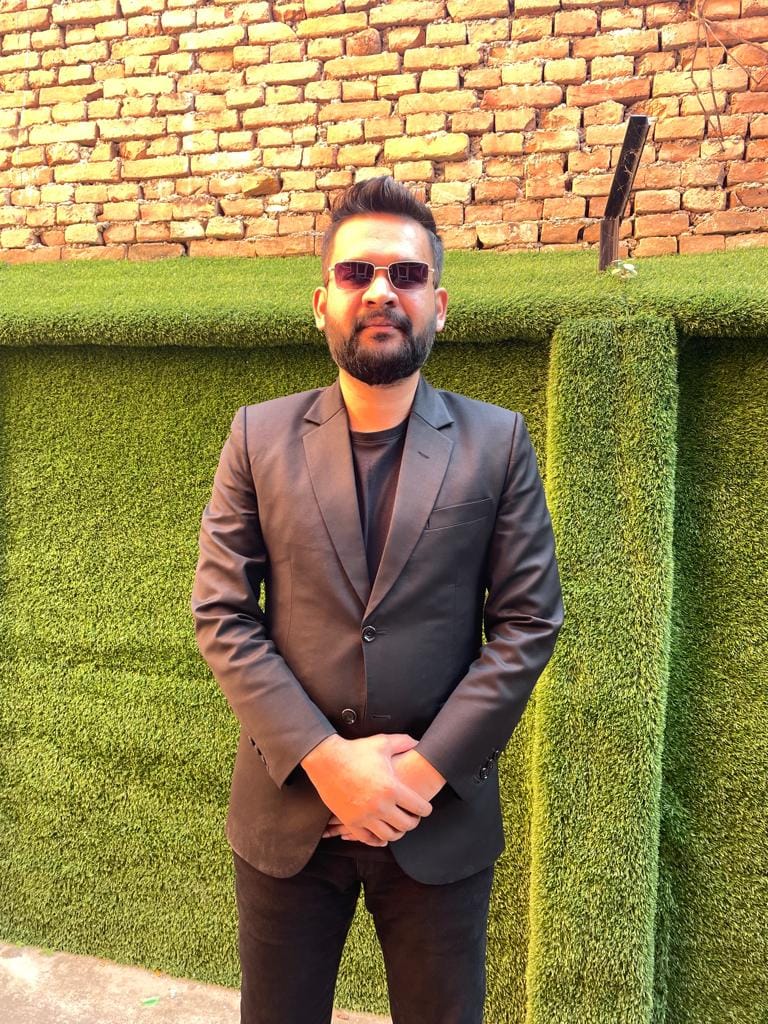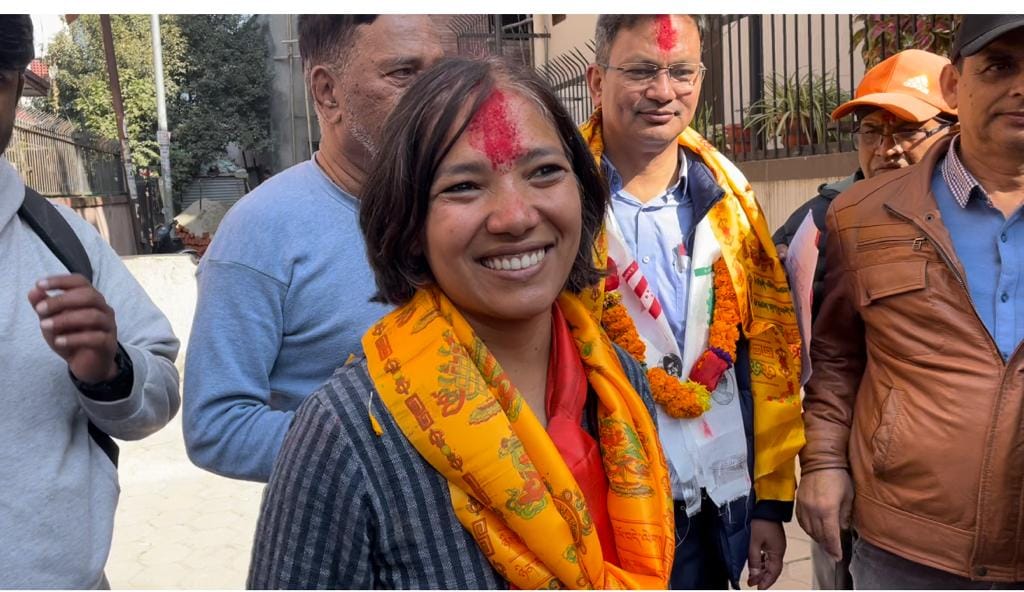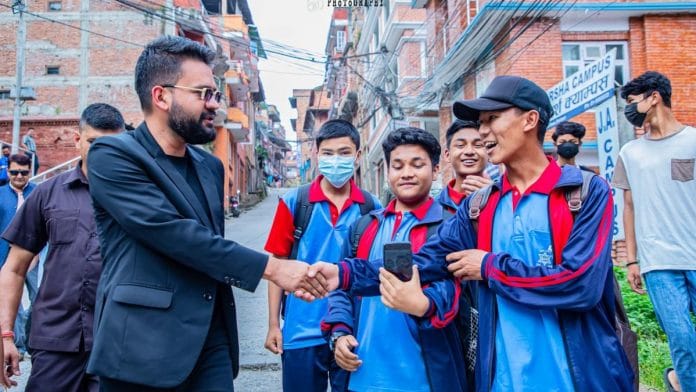In Kathmandu this week, the sky is a clear blue, the streets are much cleaner, post-Covid tourists are returning to Patan and Thamel and Nepal’s Supreme Court has just dismissed the Election Commission’s decision to annul the candidature of Dr Toshima Karki, thereby allowing her to participate in the national general elections on 20 November.
So what, one may ask. Especially if you’re focused on whether the Bharatiya Janata Party (BJP) will hold on to Himachal Pradesh and Gujarat. For starters, along with Nepal, both states will declare their election results on 8 December.
Why Nepal elections are significant
But the reason why Nepal’s upcoming election is important—not only because it is one of India’s key neighbours, and therefore a key important relationship – is because a new generation of Nepali politicians is seeking the people’s grace and telling the established political class in no uncertain terms that it is high time they moved on.
Toshima Karki is a card-carrying representative of this class of young people—but don’t be fooled by her waif-like appearance. She’s a general surgeon in Lalitpur in the Greater Kathmandu area, and a member of the Nepal Medical Council. In a Facebook post over the weekend, she told outgoing Prime Minister Sher Bahadur Deuba “to rest” and let younger people like herself rule.
Karki may or may not win, but she and a handful of equally young people are the talk of the town these days. Rabi Lamichhane, a former TV journalist who made his mark with a show based largely on sting journalism, recently launched the Rashtriya Swatantra Party (of which Karki is a member) and is now fighting a high-profile election from Nepal’s Chitwan-2 constituency.
Also read:
Rising stars of Nepalese politics
At least Lamichhane and Karki have a party. It’s a bit like the Nepali equivalent of Delhi Chief Minister Arvind Kejriwal’s Aam Aadmi Party (AAP), which, of course, infamously disavows ideological inclination. But the real star of Nepal’s so-called disenchanted malaise is Balen Shah, only 32 years old and a rapper and civil engineer from a Karnataka university, to boot. Less than six months ago, Shah was elected mayor of Kathmandu on an independent ticket, defeating a Left-wing candidate belonging to the party of former PM K.P. Sharma Oli.

Shah clearly believes he has a reputation to live up to. He is only seen in all-black ensembles and wears matching sunshades. The photo shoot area outside the office of ‘Routine of Nepal Bandha’—a social media team that ran his data-led mayoral campaign, much like Prashant Kishor’s I-PAC (Indian Political Action Committee) that provides the nuts and bolts to build the client-politician’s charisma—is faux grass on the cement floor and wall. It’s all very hip, of course.
It helps that the Kathmandu mayor’s job has a (Nepali) Rs 25 billion budget, which is probably more than the budget of several federal cabinet ministers, and Shah is making full use of his power. He says he has already committed to treble expenditure on education, while monies are being allocated to building clinics in every ward, cleaning streets, fixing transport, clearing public parks of illegal encroachment, improving heritage sites and much more. It all sounds very impressive.
The Balen Shah school has spawned men and women who pride themselves on being called ‘apolitical,’ or ‘non-ideological,’ and would rather choose goals like ‘eliminating corruption’, ‘progress’ and ‘cleaning up’ their patches.
It’s not clear whether they would also like to promote ‘social justice,’ end the discrimination against Dalits and ‘janjatis’ or tribal communities, and understand and rectify the plight of ‘Madhesis’, who constitute one-third of Nepal’s population but remain politically cowed by the upper caste Brahmins and Kshatriyas (Bahun-Chhetris) of the Kathmandu valley.
Also read:
Change your thinking, change your vote
So much so that the hashtag, #NoNotAgain, has caught on like wildfire on social media. Its Facebook page got legitimacy when the Nepalese Election Commission recently sought to ban it, but the Supreme Court intervened to stop the Commission on freedom of speech grounds.
“Soch badlaun, vote badlaun (change your thinking, change your vote),” says the slogan at the bottom of the messages on the #NoNotAgain Facebook page. Over the weekend, this message made a few waves: “Fool me once, shame on you. Fool me twice, shame on me.”
Nepal, these new-age anti-politicians say, has become a merry-go-round of ageing men and women who have no compunction about changing political parties just to stay in power.
Clearly, there’s some truth in that claim. In the last 32 years, since former King Birendra ended the partyless ‘panchayat system’ and gave way to multi-party democracy in 1990, 28 governments have held power in Nepal. Not one has lasted a full five-year term.
The current crop of top leaders is quite exceptional in that each has allied with their opponent in the past. Chances are that if neither the Nepali Congress-led coalition—led by Sher Bahadur Deuba and Maoist politician Pushpa Kamal Dahal, or Prachanda—nor the United Marxist Leninist (UML) party of K.P. Oli and Madhesi leader Upendra Yadav’s grouping get a majority, then one or the other weak link in any of the chains may snap and new chains may be created.
Also read:
Attracting young voters
Certainly, both young and old politicians are aiming at attracting the youth vote. On the weekend, Oli held a party rally at a discotheque in Kathmandu – flashing lights and all. While the other established political parties are privately making fun of him, they are all wondering how to get younger voters to vote for them.
One answer would be to give tickets to younger people, but as in all contested democracies, that is easier said than done. One woman who has beaten the whirlpool is Manushi Yami Bhattarai, daughter of former prime minister and Maoist leader Baburam Bhattarai and Hisila Yami. Manushi, who did her M.Phil from Jawaharlal Nehru University (JNU), like her father decades earlier, is fighting from one of Kathmandu’s seats and is said to have a good chance of winning. She takes public transport, campaigns from house to house beginning at 6:30 am and speaks both Newari and Nepali.

It helps that her father has given up his seat in Gorkha – which he has won three times – in favour of Prachanda, to smoothen the way for his daughter. Naturally, she’s had to deal with the charge of dynastic politics, but she remains undeterred.
Whether or not any of these young people make the cut, one thing is clear: They have fired a warning shot at the political establishment, which better shape up, or ship out.
The author is a consulting editor. She tweets @jomalhotra. Views are personal.
(Edited by Zoya Bhatti)






